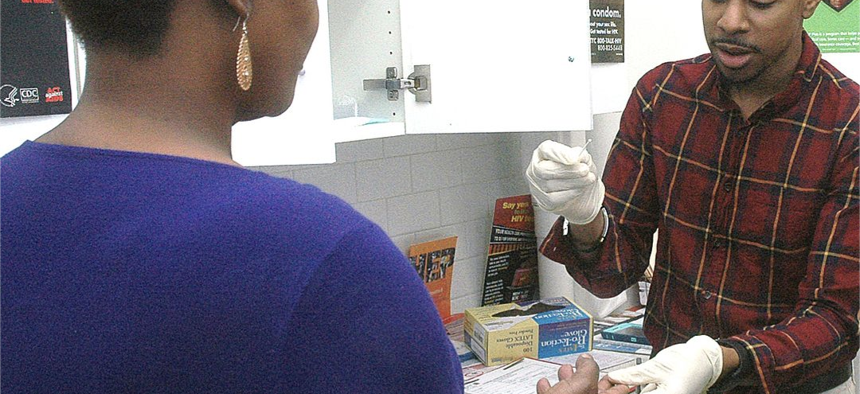Nonprofits
Alliance for Positive Change partners for free nationwide HIV testing
The nonprofit’s campaign coincided with National HIV Testing Day

David Nager
Coinciding with the observance of National HIV Testing Day on Monday, Alliance for Positive Change has announced a new partnership to provide nationwide testing for the virus.
Alliance, a nonprofit helping New Yorkers living with HIV, has teamed up with the national Greater Than AIDS campaign to provide the testing. The tests are to be given at Walgreens pharmacy locations around the country.
“National HIV Testing Day is about making sure individuals get tested,” said Arianne Watson, director of community engagement and testing at Alliance. “We definitely see a need for that in the community, across New York. It’s important that all New Yorkers know their status and every New Yorker gets tested regularly.”
Watson pointed out that this year it became particularly important for New Yorkers to get tested for HIV after COVID-19 shifted people’s focus to other health issues. Quarantine lockdowns and concerns over in-person testing also were part of the problem, Watson said. The results were fewer New York City residents checking their HIV status, with testing declining by 21% in 2020, according to the Department of Health and Mental Hygiene. A study by AIDSvu, which uses data from the Center for Disease Control (CDC), shows there were only 2,330 new HIV diagnoses statewide in 2019.
To address the shortfall, Alliance began utilizing a van under the branding, “Alliance on the Move,” to provide free health services and care, along with insurance, care coordination, and HPV testing. It’s a one-stop-shop, as Watson puts it.
“Testing has decreased so much,” she told NYN Media, “that it was important that we brought it to where the people were and were engaging in high-risk activities.”
Alliance was spreading the word Monday via a campaign on its website, as well as on social media. The nonprofit also has been engaging with members of the community by contacting police precincts and will be setting up a test site in Harlem.
“Anyone is welcome to test,” Watson said. “It’s free at Alliance. It’s a simple finger prick. We provide pre and post-test counseling if any individuals come up positive and we can triage them to care.”
Watson urged New Yorkers to get tested regularly, such as every six months if they engage in unprotected sex or share needles. Although testing HIV-positive is not as dire as it was 30 years ago, and with protective measures keeping individuals alive for many years, it is still necessary for people to know their status. Doing so will allow anyone who tests positive to receive adequate care as soon as possible, Watson said.
As of 2019, more than 125,000 New Yorkers were HIV positive. That year, then-Mayor Bill de Blasio announced the city had reached UNAIDS’ 90-90-90 target with 93% of people with HIV having been diagnosed; 90% of those diagnosed receiving treatment; and 92% of of those being treated becoming virally suppressed.